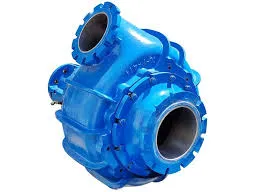English
- Afrikaans
- Albanian
- Amharic
- Arabic
- Armenian
- Azerbaijani
- Basque
- Belarusian
- Bengali
- Bosnian
- Bulgarian
- Catalan
- Cebuano
- Corsican
- Croatian
- Czech
- Danish
- Dutch
- English
- Esperanto
- Estonian
- Finnish
- French
- Frisian
- Galician
- Georgian
- German
- Greek
- Gujarati
- Haitian Creole
- hausa
- hawaiian
- Hebrew
- Hindi
- Miao
- Hungarian
- Icelandic
- igbo
- Indonesian
- irish
- Italian
- Japanese
- Javanese
- Kannada
- kazakh
- Khmer
- Rwandese
- Korean
- Kurdish
- Kyrgyz
- Lao
- Latin
- Latvian
- Lithuanian
- Luxembourgish
- Macedonian
- Malgashi
- Malay
- Malayalam
- Maltese
- Maori
- Marathi
- Mongolian
- Myanmar
- Nepali
- Norwegian
- Norwegian
- Occitan
- Pashto
- Persian
- Polish
- Portuguese
- Punjabi
- Romanian
- Russian
- Samoan
- Scottish Gaelic
- Serbian
- Sesotho
- Shona
- Sindhi
- Sinhala
- Slovak
- Slovenian
- Somali
- Spanish
- Sundanese
- Swahili
- Swedish
- Tagalog
- Tajik
- Tamil
- Tatar
- Telugu
- Thai
- Turkish
- Turkmen
- Ukrainian
- Urdu
- Uighur
- Uzbek
- Vietnamese
- Welsh
- Bantu
- Yiddish
- Yoruba
- Zulu
Telephone: +86 13120555503
Email: frank@cypump.com
Dec . 17, 2024 16:55 Back to list
screw pump centrifugal chemical pump price
Understanding the Pricing of Screw Pumps and Centrifugal Chemical Pumps
When it comes to selecting the right pump for industrial applications, the decision often narrows down to two primary types screw pumps and centrifugal chemical pumps. Both serve distinct purposes and come with varying price points that can reflect their performance, efficiency, and suitability for specific applications. In this article, we will explore the factors influencing the prices of these pumps, their operational principles, and the considerations to keep in mind when making a purchase.
Overview of Screw Pumps
Screw pumps are positive displacement pumps that utilize the rotational movement of one or more screws to transport fluid. These pumps are known for their ability to handle high-viscosity fluids, making them ideal for applications in the oil and gas sector, food processing, and chemical industries. The pricing of screw pumps can vary significantly based on factors such as size, materials, and the complexity of the pump design. Generally, expect to pay anywhere from a few thousand to several tens of thousands of dollars, depending on specifications and customization options.
Key features that can influence the price of screw pumps include
1. Material Composition Pumps made from corrosion-resistant materials or special alloys that can withstand harsh environments generally cost more. The choice of materials is essential, especially in chemical processing, where fluid compatibility is critical.
2. Pump Size and Capacity Larger pumps that can handle greater volumes usually come at a higher price point. When purchasing a screw pump, it is crucial to match the pump capacity with the expected flow rates and viscosity of the fluids being processed.
3. Customization Tailoring a screw pump to meet specific application needs—like specific pressure ratings or operational temperatures—will typically lead to increased costs.
Overview of Centrifugal Chemical Pumps
screw pump centrifugal chemical pump price

In contrast, centrifugal chemical pumps operate on a different principle. They utilize a rotating impeller to impart velocity to the fluid, converting kinetic energy into pressure energy. Centrifugal pumps are widely used in various industries, including water treatment, chemical processing, and HVAC systems. The cost of centrifugal chemical pumps can also range widely, usually starting from a few hundred dollars for small, standard units to several thousands for more complex models.
Factors influencing the price of centrifugal chemical pumps include
1. Design and Efficiency High-efficiency designs that maximize energy savings—such as multistage centrifugal pumps—tend to cost more than standard, single-stage options. Investing in energy-efficient pumps can lead to long-term savings in operating costs.
2. Flow Rate and Head The required flow rate and total dynamic head (TDH) significantly impact the price. Pumps designed for higher performance often come with an elevated price tag.
3. Material Durability Similar to screw pumps, centrifugal pumps made from high-grade materials resistant to corrosion and wear will typically have higher prices. The chemical compatibility of the pump materials with the fluids being pumped is also a critical consideration.
4. Options and Accessories Additional features like variable frequency drives (VFDs), monitoring systems, or advanced seal technologies can also lead to increased costs.
Making the Right Choice
Choosing between a screw pump and a centrifugal chemical pump depends largely on the specific requirements of your application. If you need to transfer high-viscosity fluids or require precise dosing, screw pumps may be your best option, albeit at a higher price. Conversely, if you are dealing with low-viscosity fluids and require higher flow rates, centrifugal pumps may provide a more cost-effective solution.
Conclusion
Understanding the pricing and operational characteristics of screw pumps and centrifugal chemical pumps is crucial for making an informed decision. While initial costs are an important consideration, evaluating the total cost of ownership—including maintenance, efficiency, and longevity—will provide a clearer picture of the long-term investment. Ultimately, selecting the right pump type aligned with your operational needs can lead to improved efficiency and reliability in your processes, making the decision worth the investment.
-
Horizontal Split Case Pump with GPT-4 Turbo | High Efficiency
NewsAug.01,2025
-
ISG Series Pipeline Pump - Chi Yuan Pumps | High Efficiency, Durable Design
NewsAug.01,2025
-
Advanced Flue Gas Desulfurization Pump with GPT-4 Turbo | Durable & Efficient
NewsJul.31,2025
-
ISG Series Vertical Pipeline Pump - Chi Yuan Pumps | Advanced Hydraulic Design&Durable Construction
NewsJul.31,2025
-
ISG Series Vertical Pipeline Pump - Chi Yuan Pumps | Energy Efficient & Low Noise
NewsJul.31,2025
-
pipeline pump - Chi Yuan Pumps Co., LTD.|High Efficiency&Low Noise
NewsJul.31,2025










